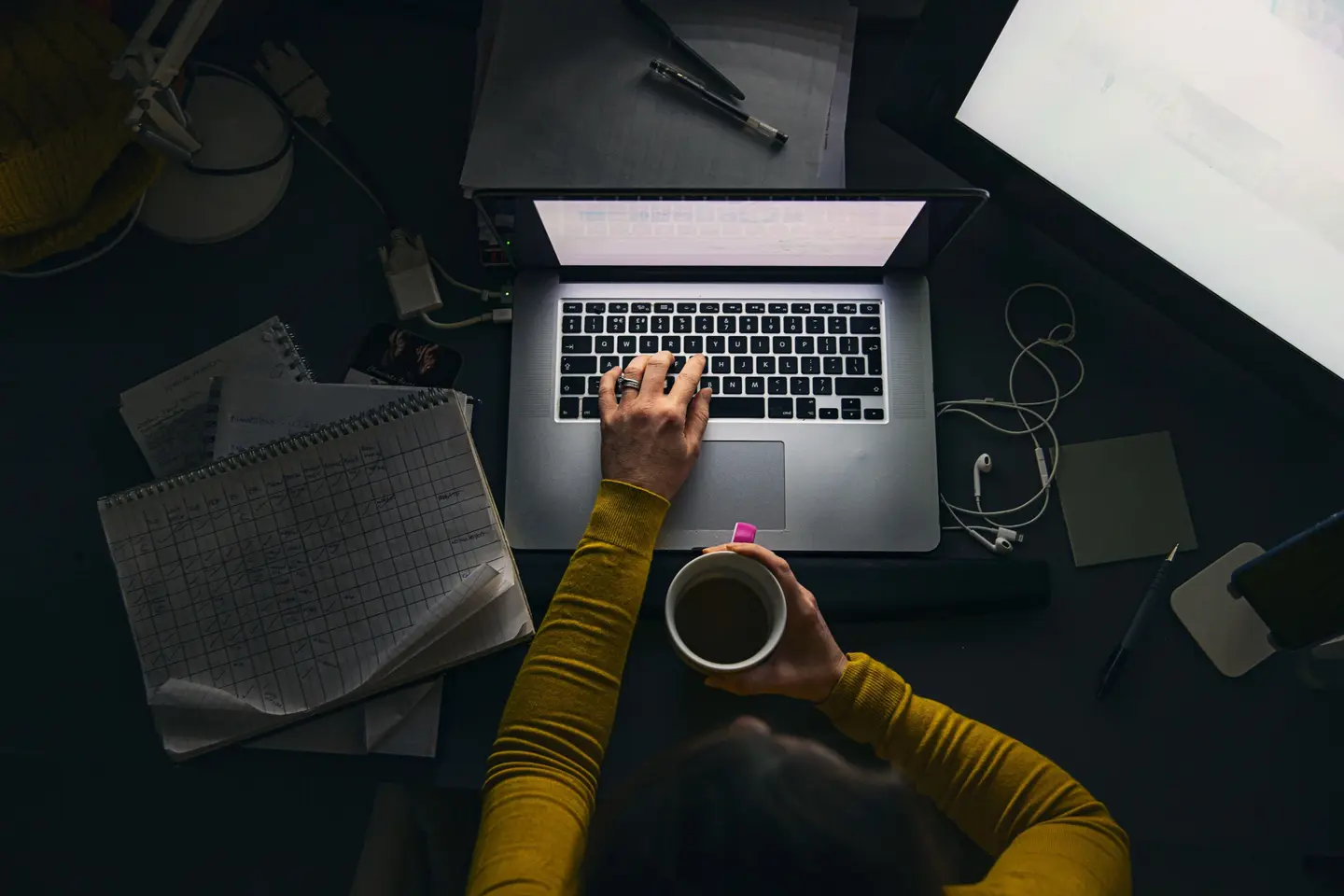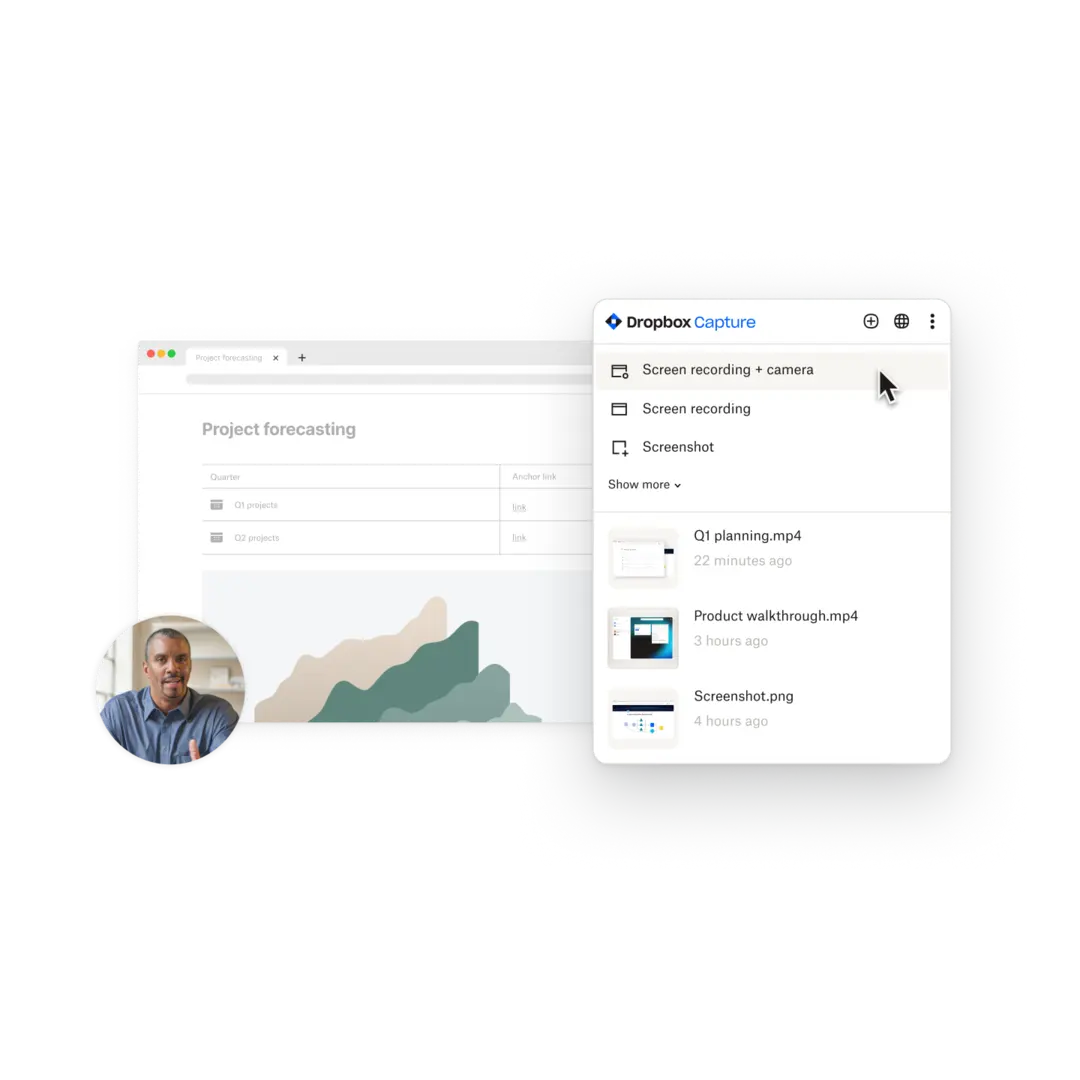Attention spans and how to focus better
You’ve been on an endless loop of late nights and bleary-eyed mornings after weeks of attention-deficit-inducing multitasking. Then, one day, you actually need an enduring attention span for an important task and you’re just not up to it. Knowing how to focus better at work is a vital skill but how do you do it when you’re already burned out?
Whether you were the kid who was squirming in class or you were a bookworm who had no trouble paying attention, as an adult, staying engaged in the workplace can still be challenging.
But this time it’s all on you: in a work environment, your time-management, decision-making, and disciplined attention span are yours to own. Lapses in concentration can negatively impact teams both big and small. And as a freelancer or small business owner, knowing how to focus on work while juggling multiple projects ensures you get out of your business what you put in.
Improving your focus to help you power through tasks can be gratifying unto itself. Not only will you enjoy better performance, you may also find your overall lifestyle changes for the better, too. An out-of-balance "work/life balance" is frequently cited as the main cause of employee dissatisfaction. Studies have actually found that upping your productivity may be key to perfecting it rather than focusing on the status of your work/life balance. And, of course, better focus ultimately starts at home.
How to improve focus with better sleep
Whatever your goals might be—finishing a project, closing a deal, getting through a back-log of paperwork—quality sleep is a must. You’re not going to get much of anything done, or at least done well, if you’re exhausted. It’s well documented that sleep affects work productivity. And it’s no wonder that many of the world’s most productive geniuses took power naps to keep their energy up. If you’re leading a team, your time is probably too valuable to be spent on afternoon naps, but you should still make sure you’re getting the rest you need every night, or even take what opportunities you can during the day. A team that is remote or spread across several floors may tempt you to go running between departments or devices to keep your project on track. Fortunately, Dropbox helps remove the need to do either, and even five minutes of sitting down and collecting your thoughts can do wonders for your focus and your brain health.
Sleep gives your mind and body much needed time to rest and rejuvenate after the work day. The recommended amount of sleep for the average adult is between seven and nine hours a night. Less than this can cause sleep-deprivation, but oversleeping can similarly cause low energy levels. It might seem like working extra hours will help get through your workload and then you can catch up on sleep on the weekend, it ultimately becomes counter-intuitive.
Make sure you stick to good sleep hygiene every night. Ban phone calls and text messages before bed and, if possible, keep your phone in another room entirely. Simply dedicate your time to relaxing and unwinding. When you let yourself truly recharge your mental energy at the end of the day, you’ll wake up well-rested and ready for work the next morning.
How to focus on work with mindful thinking
Concepts like "Deep Work" and "Deliberate Practice" are based on the idea of mastering your own mind. Practicing mindfulness is increasingly seen as key to productivity.
Imagine a golfer practicing a swing again and again. Without mindfulness, the action of the swing is nothing more than an autopilot habit as the golfer put in the reps to their targeted swings a day. Deliberate practice requires every swing to be analyzed so that improvement happens even from swing one to swing two, in small, intentional increments.
The workplace may not be a golf course, but the same rules apply. Instead of going to the office and hoping that pure willpower and high energy levels will ensure a successful day (which is not realistic), take a closer look at each segment of your day.
Do you wake up at the same time each day? Are you giving yourself enough time to bathe and dress? Do you have a good amount of time to enjoy breakfast and eat a meal that isn’t a guaranteed sugar crash? If the answer is no, then improving your focus starts there. It’s that simple. Bottom line: you can begin to improve your focus at work just by improving your morning routine.
"Deep Work" operates in the same way and refers to honing in on a task once you eliminate distractions. If you have made efforts to ban yourself from your phone before bed and are disciplined in your wake-up routine, then you can easily transfer this same mindset to manage your workload and from there, even help your team adopt these life-improving changes, too.
Mindfulness helps you be aware of—and be prepared to break—bad habits while instilling good ones in their place. This is a vital way to improve your productivity. After all, no one is ready for a great day at work if they arrive flustered and hungry after a frantic and rushed commute.
Improving productivity at work with digital tools
Once you start to improve your focus from the foundations of your everyday habits, you can start introducing some external tools, too. While everyone is responsible for their sleep outside of working hours, using digital tools can help you and your team stay focused and be more organized in the office.
Connecting your team with Dropbox business account can help you do that. You’ll no longer need to jump between different folders, windows and devices to find your team member’s files nor rush between departments to chase them. If time is of the essence, then Dropbox can be a digital hub that lets you see everything you need all in one place.
No more hiding behind "I missed the memo." And no more wasting time rushing around the office finding out who’s doing what, while getting distracted by small talk along the way. Once you’re focused and in the zone, you’re free to be more productive—while actually enjoying what you’re doing.
Try a digital detox
Digital tools can be a great thing, but there’s a difference between productive work tools like Slack or Trello and digital distractions like social media and texting. Workplace productivity is all about being committed and present in the moment. You can instantly eliminate productivity-zapping distractions by muting out your friends and followers. Don’t fall into the "I’ll just take a peek" trap because you don’t even have to be looking at a message to dwell on and be distracted by it.
If at 9am your main concern is your social media newsfeed, you’re sure to lose motivation for work when that latest spreadsheet hits your inbox at 9:05. The same can happen with the hundreds of different programs you work with on a daily basis. However, the Dropbox smart workspace gives you and your team central access to all your most important apps and files, cutting out the need to constantly switch between apps and platforms—for good. You can just drop a file from Slack directly onto your team’s Trello board, without anyone sifting through their browser tabs. With Dropbox, you can escape distractions while still being connected.
Collaborate and listen
Collaboration is another area where people tend to lose focus. Even when you’re working flawlessly with a team of a dozen members, endless notifications and questions are a constant distraction. But with the right productivity tools, group work can be exciting and fun rather than an annoyance. In Dropbox you can stay connected with your team, comment and assign work across different apps and devices, so being a team player becomes second nature. You can create and edit as a team in Dropbox Paper, set due dates, securely request files, and streamline your workflow all with full visibility so you know precisely what everyone is doing. By improving productivity, you can also add short breaks so you can regroup during high-stress days. And, if you’re working solo, these tools can help you stay on top of everything on your to-do list while also letting you securely invite clients to share feedback.
Staying focused
If you want to know how to focus better, then it’s vital to understand that your focus isn’t something that exists only at work. When you learn to practice mindfulness in your everyday life—from the moment your alarm clock goes off in the morning to the moment your head hits the pillow in the evening—you can dramatically improve your ability to focus. In the end, you’ll end up becoming much stronger in your work, bringing out the best in your team —and enjoying it all more, too.



